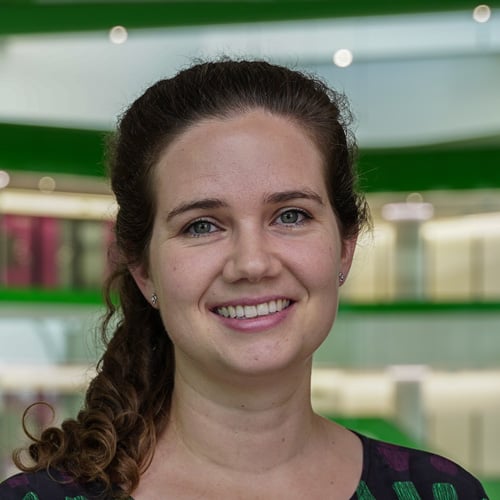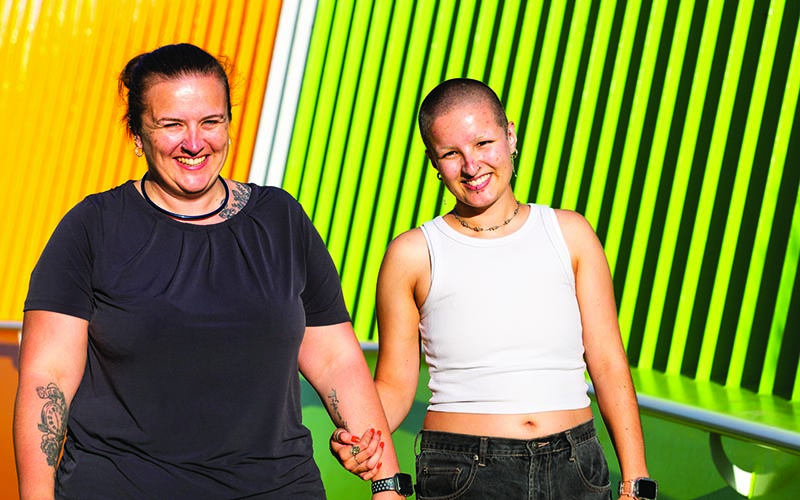Search
Research
Gender differences in the experience of psychotic-like experiences and their associated factors: A study of adolescents from the general population"Psychotic-Like Experiences" (PLEs) are common in the general population. While they are usually transient and resolve spontaneously, they can be distressing and signify increased risk for later psychosis or other psychopathology. It is important to investigate factors associated with PLEs which could be targeted to reduce their prevalence and impact. Males and females are known to experience PLEs differently, but any gender differences in the relationships between PLEs and other, potentially targetable, factors are currently unknown.
Research
Group mindful self-compassion training to improve mental health outcomes for LGBTQIA+ young adults: Rationale and protocol for a randomised controlled trialYoung adults who are lesbian, gay, bisexual, trans, queer or questioning, intersex, asexual and other diverse genders and sexualities (LGBTQIA+) are more likely to experience mental health difficulties and are at significantly elevated risk of substance abuse, self-harm and suicide, relative to their heterosexual, endosex and cisgender peers. There is a need for effective mental health interventions for LGBTQIA+ young adults. Mindful Self-Compassion training is a promising approach; among LGBTQIA+ individuals, self-compassion accounts for more variation in mental health outcomes than bullying, victimization, and adverse childhood experiences combined. Furthermore, LGBTQIA+ individuals with high self-compassion report more positive identity and happiness, less self-stigma, and lower suicidality than those with low self-compassion.
Research
Computerized cognitive behavioural therapy for gender minority adolescents: Analysis of the real-world implementation of SPARX in New ZealandSPARX is a form of computerized cognitive behavioural therapy in serious game format funded via the Ministry of Health to be freely available in New Zealand. At registration users identify themselves as male, female, transgender or intersex. We aimed to establish whether adolescent transgender users of SPARX, compared to adolescent male and female users, were more likely to have high mental health needs at baseline and were more likely to complete SPARX. We also sought to determine changes in transgender adolescents' depressive symptoms after using SPARX.


A new website for parents of trans children and young people across Australia is expected to improve family wellbeing and ultimately save lives after launching in May 2023.
Research
Gender DiversityNot all children or teenagers identify with the gender they were assigned at birth. As a result, some may choose to change their name, their clothes or their body. With considerably higher rates of depression, anxiety, self-harm and attempted suicide, the need for specialist mental health services has been recognised.
Research
Psychological wellbeing outcomes across genders in childhood and adolescence aged 8–18 years: a population-level perspectiveThis study aimed to examine the difference in levels of psychological wellbeing outcomes of binary and non-binary transgender and cisgender students aged 8–18 years in South Australia using population-level data.
Research
Experiences and Recognition of Intimate Partner Violence among a Community-Sample of LGBTIQA + People in Western AustraliaLGBTIQA + people experience intimate partner violence (IPV) at higher rates than non-LGBTIQA + people but under-utilize professional support services, and the reasons for this are poorly understood. This study examined IPV experiences, recognition of IPV, service utilization, and support needs among a self-selected sample of 523 LGBTIQA + adults in Western Australia.
Research
Psychometric evaluation of the Comprehensive Autistic Trait Inventory in autistic and non-autistic adultsMeasures of autistic traits are only useful – for pre-diagnostic screening, exploring individual differences, and gaining personal insight – if they efficiently and accurately assess autism as currently conceptualised while maintaining psychometric validity across different demographic groups. We recruited 1322 autistic and 1279 non-autistic adults who varied in autism status (non-autistic, diagnosed autistic, self-identifying autistic) and gender (cisgender men, cisgender women, gender diverse) to assess the psychometric properties of the Comprehensive Autistic Trait Inventory, a recently developed measure of autistic traits that examines six trait domains using 42 self-report statements.
Research
Ensuring That Marginalized Young People Feel Welcome, Understood, and Empowered in Health Services: A Qualitative Examination of the Service Needs of Aboriginal LGBTQA+ Young PeopleA lack of appropriate care and discrimination in healthcare settings likely compounds the existing risks to mental health and well-being for Aboriginal and Torres Strait Islander lesbian, gay, bisexual, trans, queer/questioning, and asexual (LGBTQA+) young people. The current study contributes findings from Aboriginal LGBTQA+ young people's perspectives on their health service needs and preferences.
